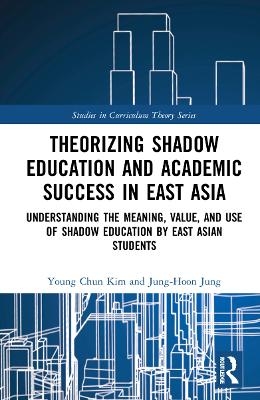
Theorizing Shadow Education and Academic Success in East Asia
Routledge (Verlag)
978-0-367-56461-2 (ISBN)
This volume tackles perceived myths surrounding the academic excellence of East Asian students, and moves beyond Western understanding to offer in-depth analysis of the crucial role that shadow education plays in students’ academic success.
Featuring a broad range of contributions from countries including Japan, China, Taiwan, and Singapore, chapters draw on rich qualitative research to place in the foreground the lived experiences of students, teachers, and parents in East Asian countries. In doing so, the text provides indigenous insights into the uses, values, and meanings of shadow education and highlights unknown cultural and regional aspects, as well as related phenomena including trans-boundary learning culture, nomadic learning, individualized learning, and the post-schooling era. Ultimately challenging the previously dominating Western perspective on shadow education, the volume offers innovative theorization to highlight shadow education as a phenomenon which cannot be overlooked in broader discussion of East Asian educational performance, systems, and policy.
Offering pioneering insights into the growing phenomenon of shadow education, this text will benefit researchers, academics, and educators with an interest in international and comparative education, curriculum studies, and East Asian educational practices and policy. Those interested in the sociology of education and educational policy will also benefit from this book.
Young Chun Kim is Professor of Education at Chinju National University of Education, South Korea. Jung-Hoon Jung is an Instructor at Chonnam National University, South Korea.
Introduction: Shadow Education in East Asia: The Historical and Cultural Heritage of Learning Fever and Academic Success
Part 1: Shadow Education, Trans-boundary Learning Culture, and Academic Success
Chapter 1: Shadow Education Studies as Post-Truth Discourse: Ruins of the Tradition and Theorizing Academic Success with "Learning Capital"
Young Chun Kim and Jung-Hoon Jung
Chapter 2: Four Secret Variables of Shadow Education Practices for Academic Success
Young Chun Kim, Michael McVey, and Jung-Hoon Jung
Chapter 3: With/Without Public Schooling: The Trans-Boundary Learning Culture as an Emerging Feature of Academic Success
Young Chun Kim, Jae-seong Jo, and Jung-Hoon Jung
Chapter 4: Learners as Nomad: East Asian Students’ Changing Identities for Academic Success under Shadow Education
SungEun Min and Jae-seong Jo
Part 2: Top Tiers of Pisa: World Class Learners and Use of Shadow Education
Chapter 5: South Korea: Currere of Learning under Shadow Education
Myung Hee Park
Chapter 6: South Korea: Preview Learning in Shadow Education for School Success
Sangwon Jung, Seongho Choi, and Jung-Hoon Jung
Chapter 7: Japan: Forms and Functions of Shadow Education
Robert J. Lowe and Ryo Mizukura
Chapter 8: Taiwan: Changing Learning Culture led by Shadow Education
Jeng Liu
Chapter 9: Hong Kong: Students’ Learning in Shadow Education
Kevin Wai Ho Yung
Chapter 10: Singapore: Shadow Curriculum between ‘Private Tuition’ and ‘Enrichment’
Søren Christensen
Part 3: Shadow Curriculum, Race for Academic Success, and Winner-takes-it-all
Chapter 11: Making Smart Students Smarter: The Cultural Production of Olympiad Winners through Secret Shadow Curriculum
Young Chun Kim, Jae-seong Jo, and Jung-Hoon Jung
Chapter 12: The Other Side of Learning for Scores and School Grades: The Hidden Curriculum in Shadow Education
Young Chun Kim, SungEun Min, and Jae-seong Jo
Chapter 13: Fearful Future: The Worldwide Shadow Education Epidemic and the Reproduction of Inequality outside Public Schooling
Steven R. Entrich and Wolfgang Lauterbach
| Erscheinungsdatum | 22.12.2022 |
|---|---|
| Reihe/Serie | Studies in Curriculum Theory Series |
| Zusatzinfo | 2 Tables, black and white; 2 Line drawings, black and white; 2 Illustrations, black and white |
| Verlagsort | London |
| Sprache | englisch |
| Maße | 152 x 229 mm |
| Gewicht | 385 g |
| Themenwelt | Sozialwissenschaften ► Ethnologie |
| Sozialwissenschaften ► Pädagogik ► Bildungstheorie | |
| Sozialwissenschaften ► Soziologie | |
| ISBN-10 | 0-367-56461-0 / 0367564610 |
| ISBN-13 | 978-0-367-56461-2 / 9780367564612 |
| Zustand | Neuware |
| Informationen gemäß Produktsicherheitsverordnung (GPSR) | |
| Haben Sie eine Frage zum Produkt? |
aus dem Bereich


